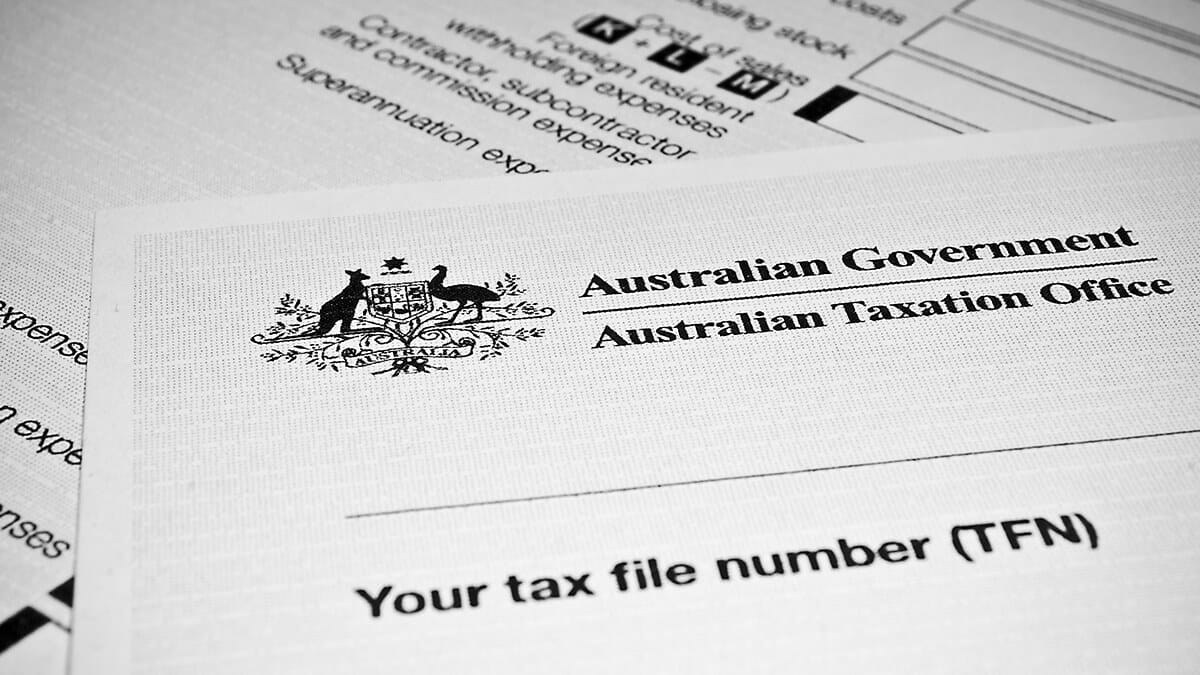In this guide
- Who needs to file a tax return?
- What taxes will I pay in retirement?
- Retirees with SMSFs and other income sources in retirement
- What about claiming my franking credits?
- What is SAPTO and why does it matter?
- Tax returns for Age Pension recipients
- Submitting a non-lodgment advice to the ATO
- Get more guides like this with a free account
You might think most of your tax worries are over once you reach retirement. Unfortunately, it’s not that simple.
Many retirees find they still need to file an annual tax return as they are receiving assessable income from investments or part-time employment.
Who needs to file a tax return?
If you receive a tax-free super pension, generally you are only required to lodge a return if you receive additional income from another source, such as investments.
For part or full age pensioners, you generally only need to file a tax return if you’re receiving income on top of your regular pension payments.
Age pensioners who are fully reliant on pension payments for their retirement income are generally not required to lodge a return but still need to lodge a form with the ATO (see section below).
What taxes will I pay in retirement?
The key thing to remember is that even though you’re retired, the same tax rules apply to you as everyone else. This means you’re required to pay tax on any assessable income over the tax-free threshold ($18,200 in 2025–26), less any applicable tax offsets (such as SAPTO – see section below) and tax deductions.
In addition to income tax, you may also be liable for the Medicare levy, which is 2% of your taxable income.
Under the general tax rules, your assessable income must be declared in your tax return each year and includes:
- Income from wages or salary
- Income from investments, such as dividends or interest from savings accounts or term deposits
- Income from a business (if you are still running your own business and earn an income in any form, you must lodge a tax return)
- Rental income
- Most lump-sum payments, such as an inheritance, insurance or compensation payments
- Foreign income.
Retirees with SMSFs and other income sources in retirement
If you receive income from investments outside the super system, or are a trustee of an SMSF, filing tax returns will remain on your annual to-do list.
An annual tax return is still a requirement for an SMSF, even when fund members move into the retirement income phase.
The fund members receiving a tax-free super pension, however, will generally not be required to lodge an annual return if the super pension is their only source of retirement income.
If you’re a retiree with retirement income sources other than – or in addition to – a tax-free super pension, you must lodge a tax return.
The ATO provides a long list of potential income sources you may have received during the financial year that mean you need to lodge a tax return:
- You had a reportable fringe benefits amount on your:
- Income statement or PAYG payment summary – individual non-business, or
- Income statement or PAYG payment summary – foreign employment.
- You had reportable employer superannuation contributions on your:
- Income statement or PAYG payment summary – individual non-business
- Income statement or PAYG payment summary – foreign employment, or
- Income statement or PAYG payment summary – business and personal services income.
- You were entitled to the private health insurance rebate, but you did not claim your correct entitlement as a premium reduction, and your spouse (if you had one) is not claiming the rebate for you in their income tax return.
- You carried on a business.
- You made a loss (including a capital loss or a non-capital loss on redemption or disposal of a traditional security) or you can claim such a loss you made in a previous year.
- You were aged 60 or older and you received an Australian super lump sum that included an untaxed element, or it’s a superannuation lump sum death benefit paid to you as a non-dependant.
- You were aged under 60 and you received an Australian super lump sum that included a taxed element, or an untaxed element, or it is a super lump sum death benefit paid to you as a non-dependant.
- You were entitled to a distribution from a trust, or you had an interest in a partnership and the trust or partnership carried on a business of primary production.
- You were an Australian resident for tax purposes and you had exempt foreign employment income and $1 or more of other income.
- You’re a special professional covered by the income averaging provisions. (These apply to authors of literary, dramatic, musical or artistic works, inventors, performing artists, production associates and active sportspeople.)
- You received income from dividends or distributions exceeding $18,200 and you had:
- Franking credits attached, or
- Amounts withheld because you did not quote your TFN or Australian business number to the investment body.
- You derived Australian-sourced taxable income (excluding any super remainder or employment termination remainder) of $45,001 or more while you were on a working holiday visa (417 or 462 visa).
- You made personal contributions (not including amounts which you are claiming as a deduction) to a complying super fund or retirement savings account and will be eligible to receive a super co-contribution for these contributions.
- Your concessional contributions to your super exceeded the concessional contributions cap.
- Your non-concessional contributions exceeded your non-concessional contributions cap.
- You were a liable parent or a recipient parent under a child support assessment unless:
- You received one or more Australian Government allowances, pensions or payments for the whole financial year
- The total of all the following payments was less than $29,842 (in 2024–25)
- Taxable income (excluding any assessable First Home Super Saver Scheme released amount)
- Exempt Australian Government allowances, pensions and payments
- Target foreign income
- Reportable fringe benefits
- Total net investment loss
- Net rental property loss
- Reportable superannuation contributions.
What about claiming my franking credits?
If you received franking credits during the financial year but don’t need to lodge a tax return, you’re still eligible to claim a refund of your credits.
You can apply for your refund online through your myGov account linked to ATO Services, over the phone, or by mail using the ‘Refund of franking credits for individuals’ form.
The ATO also provides automatic refunds of franking credits to eligible seniors using information provided by share registries. If you’re eligible and aren’t required to lodge a tax return, you won’t need to apply for a refund of your franking credits as they will be refunded automatically.
What is SAPTO and why does it matter?
Even if you do have assessable income, all is not lost, thanks to a special tax offset for seniors and Age Pension recipients.
The Seniors and Pensioners Tax Offset (SAPTO) can reduce – or even eliminate – the amount of tax you’re liable to pay, which may mean you’re not required to lodge a tax return.
Eligibility for SAPTO requires you to meet certain conditions:
1. You are eligible to receive the Age Pension or Department of Veterans’ Affairs (DVA) Pension.
2. You pass a rebate income threshold test to determine whether you’re entitled to a full or partial offset.
Your rebate income is the total of the following items:
- Your taxable income (if any). This is your assessable income less any deductions you’re eligible to claim.
- Your reportable employer super contributions (if any). Reportable employer super contributions are any contributions your employer makes on your behalf above the compulsory Super Guarantee.
- Your deductible personal super contributions (if any). Deductible personal super contributions are any you made voluntarily to a super fund and claim as a tax deduction on your tax return.
- Your net financial investment loss (if any). This includes any loss you may have made from investing in assets like shares or managed funds.
- Your net rental property loss (if any). A net rental property loss occurs when your property expenses exceed your rental income it generates.
- Your fringe benefits (if any). Fringe benefits include any benefits your employer provides as part of your salary package.
To check your potential eligibility for SAPTO, use the ATO’s Seniors and Pensioners Tax Offset Calculator.
Even if you’re eligible for SAPTO, but your personal rebate income exceeds the following amounts during the financial year, you still need to lodge a tax return:
- If you were single, widowed or separated at any time during the financial year, the rebate income threshold is $34,919 (for 2024–25).
- If you lived with your spouse for the full year, the rebate threshold is $30,994 (for 2024–25).
- If one spouse lived in a nursing home or away due to illness, the rebate threshold is $33,732 (for 2024–25).
Tax returns for Age Pension recipients
Generally, the following rules apply for Age Pension recipients when it comes to deciding if you need to lodge a tax return:
- If Centrelink doesn’t withhold any tax from your Age Pension payments and you didn’t receive any other income, you will not need to lodge a tax return for the financial year.
- If you receive the Age Pension (either full or part) and receive income from other sources and Centrelink is withholding tax from your pension payments, it is compulsory to lodge a tax return each year.
Submitting a non-lodgment advice to the ATO
People who don’t need to lodge an annual tax return aren’t off the hook completely.
The tax rules require you to submit a non-lodgment advice form. This document informs the ATO that you are not lodging a tax return for the financial year and ensures it won’t chase you for not submitting.
You can complete a non-lodgment advice via your ATO Services account linked to your myGov account, or by filling in a form downloaded from the ATO website (usually available in May/June). Alternatively, you can get your tax agent (if you have one) to submit it for you.
You’re not required to complete a non-lodgment advice if you have already submitted a tax return, non-lodgment advice form or letter telling the ATO you don’t need to lodge a tax return for all future years.


Leave a Reply
You must be logged in to post a comment.